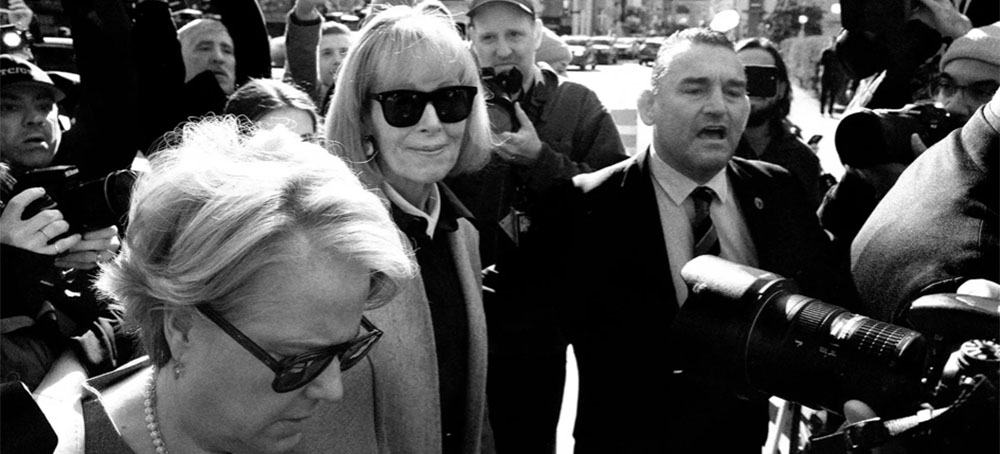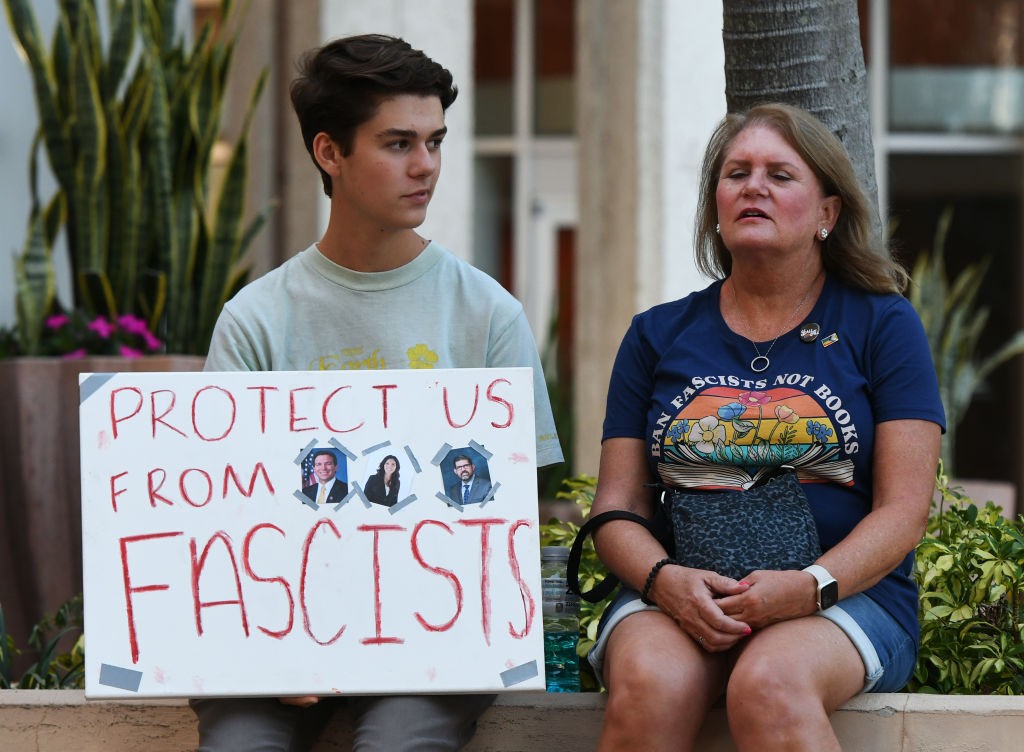Live on the homepage now!
Reader Supported News
The 79-year-old writer’s rape case shows what happens to a country that elects a president who so openly embraces degrading women.
The trial, which continues this week, is of course about Carroll, but it also speaks to the state of the feminist movement in America. Trump is no longer in the White House—for now—and for the first time we can look at the carnage of having a president who so openly embraced misogyny. Misogyny, like racism, thrives when it has a cheerleader, when it has someone who gives his supporters permission to engage in it. With racism, we can measure an increase in race-related harassment and violence. For example, hate crimes rose the day after Trump was elected. Counties that held Trump rallies in 2016 saw a 226% increase in hate crimes, according to The Washington Post. But it’s profoundly hard to measure what an increase in misogyny looks like. We certainly saw profound backlash toward Christine Blasey Ford, who accused Supreme Court justice Brett Kavanaugh of sexually assaulting her when they were teenagers. (Kavanaugh has denied the allegations.) Blasey Ford had to effectively go into hiding after coming forward. But it’s important to recognize that unfettered sexism often results in silence—in women opting out of speaking up.
Carroll’s narration of her own experience after coming forward is a pretty good example of the kind of misogyny that Trumpism embraces, and the impact it can have on those brave enough to step up. “It hit me and it laid me low because I lost my reputation. Nobody looked at me the same. It was gone. Even people who knew me looked at me with pity in their eyes, and the people who had no opinion now thought I was a liar and hated me,” later she said, “The force of hatred coming at me was staggering.”
There have been many moments in Carroll’s trial that tangibly laid bare why women don’t report sexual assault. Trump’s attorney, Joe Tacopina, was profoundly aggressive with Carroll, a near octogenarian. “I’m telling you, he raped me whether I screamed or not. I don’t need an excuse for not screaming,” Carroll responded to Tacopina’s repetitive drumbeat of questioning, which the judge Lewis A. Kaplan called “argumentative” and “repetitive” last Thursday.
As if right on cue, Trump offered up the most misogynistic possible response to being accused of sexual misconduct. “And, while I am not supposed to say it, I will. This woman is not my type!” he wrote on Truth Social. It’s not the first time Trump has used this defense against allegations of sexual assault: the idea that a woman might not be attractive enough to rape. After all, Carroll is hardly Trump’s only accuser; at last count 26 women have made allegations of everything from groping to rape against the ex-president (Trump has repeatedly denied the allegations). Caroll’s aren’t an enormous shock to the system, either. Trump’s supporters, including evangelicals, have long reconciled with the idea that more than two dozen women have said their guy sexually assaulted them.
Some Trump supporters will say Carroll’s allegations are part of a larger anti-Trump conspiracy, as Tacopina hinted last week in trial when he pressed the writer on how she came to sue Trump. I’ve somehow been spun into this tale, which starts at a cocktail party I hosted at my apartment where I introduced Carroll to lawyer and Never Trump Republican activist George Conway, who, in turn, introduced her to Robbie Kaplan, the lawyer now representing her. Then there are the people who accuse Carroll of doing this as a cash grab. Former US attorney Joyce Vance made a good point regarding that theory: “Interesting consideration: Trump almost always settles cases when he can. If Carroll wasn’t being truthful & suing because she wanted her day in court, if she was really just after money, she would have settled, taken the cash & spared herself the court proceedings.”
It’s hard to listen to Carroll’s testimony and not be moved by just how lonely and painful it is to be a plaintiff in something like this. She is brave and almost quixotic in her quest for justice. But it’s even harder to watch Tacopina’s questioning and not wonder about all the women who will watch this testimony or read about this trial and decide not to come forward with their own stories. That Carroll is in a courtroom able to make these accusations in front of a jury shows we as a society have made progress around feminism. Yet knowing that Republicans, who are still showing their fealty to Trump, will almost certainly fail this “moral test” yet again, as The New Republic’s Michael Tomasky wrote, is a measure of the damage Trump has done to our culture.
I grew up with a feminist mother, Erica Jong. I always thought we’d eventually get the Equal Rights Amendment ratified. I always believed that progress was a straight line. Then the 2016 presidential election happened, becoming a demarcation line in my outlook about the country. The American people had a choice between the first woman president and a man who, one month before the election, they’d heard bragging on the Access Hollywood tape that he could “grab ’em by the pussy.” Yet, 62,979,879 people did not find boasting about sexual misconduct to be disqualifying. They elected him; there was even a woman who wore a “Trump Can Grab My” T-shirt.
Even if Trump is forced to pay Carroll great sums of money, she will spend the rest of her life afraid, looking over her shoulder, worried. The vitriol and misogyny and hatred that Trump gave permission to won’t ever be put back in Pandora’s box.
Follow us on facebook and twitter!
PO Box 2043 / Citrus Heights, CA 95611













